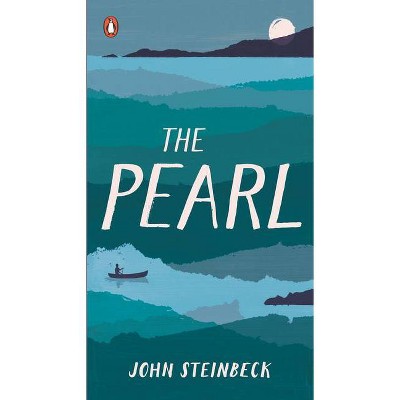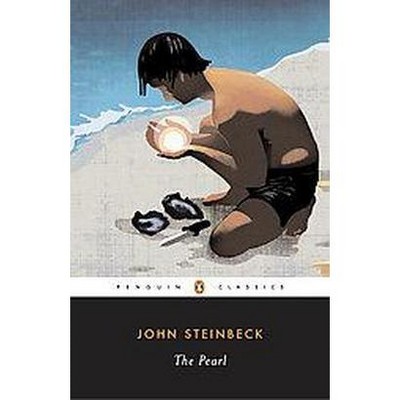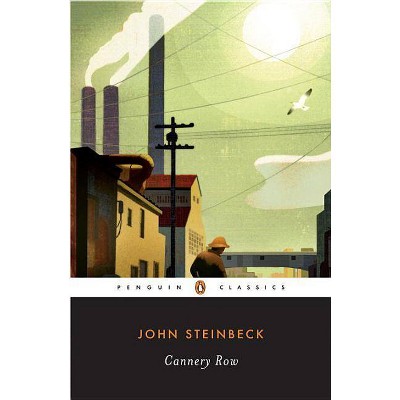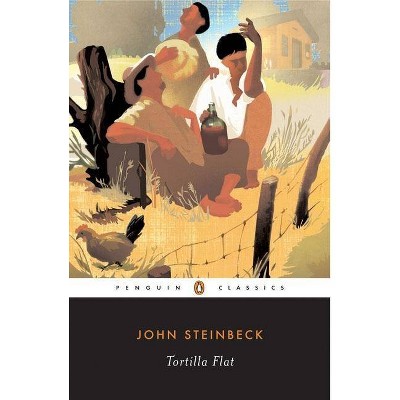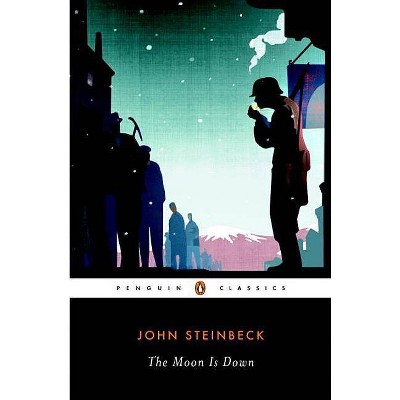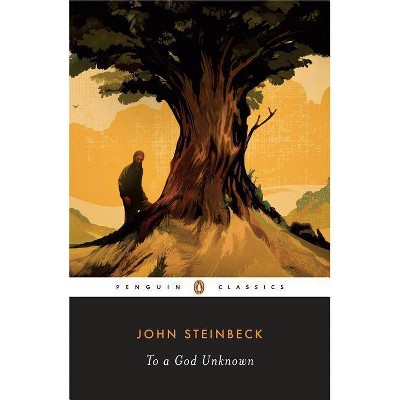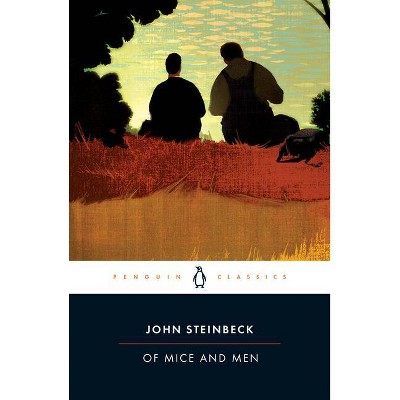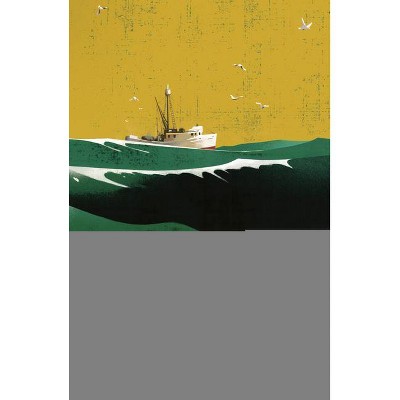The Pastures of Heaven - (Penguin Great Books of the 20th Century) by John Steinbeck (Paperback)
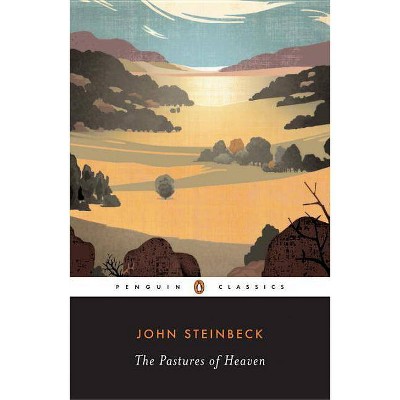
Similar Products
Products of same category from the store
AllProduct info
<p/><br></br><p><b> Book Synopsis </b></p></br></br><b>A Penguin Classic</b> <p/>In Nobel Prize winner John Steinbeck's beautifully rendered depictions of small yet fateful moments that transform ordinary lives, these twelve early stories introduce both the subject and style of artistic expression that recur in the most important works of his career. Each of these self-contained stories is linked to the others by the presence of the Munroes, a family whose misguided behavior and lack of sensitivity precipitate disasters and tragedies. As the individual dramas unfold, Steinbeck reveals the self-deceptions, intellectual limitations, and emotional vulnerabilities that shape the characters' reactions and gradually erode the harmony and dreams that once formed the foundation of the community. This edition includes an introduction and notes by James Nagel. <p/>For more than seventy years, Penguin has been the leading publisher of classic literature in the English-speaking world. With more than 1,700 titles, Penguin Classics represents a global bookshelf of the best works throughout history and across genres and disciplines. Readers trust the series to provide authoritative texts enhanced by introductions and notes by distinguished scholars and contemporary authors, as well as up-to-date translations by award-winning translators.<p/><br></br><p><b> Review Quotes </b></p></br></br><br><b>By the Winner of the Nobel Prize in Literature</b> <p/>John Steinbeck knew and understood America and Americans better than any other writer of the twentieth century. (<i>The Dallas Morning News</i>) A man whose work was equal to the vast social themes that drove him. (Don DeLillo)<br><p/><br></br><p><b> About the Author </b></p></br></br><p><b>John Steinbeck</b>, born in Salinas, California, in 1902, grew up in a fertile agricultural valley, about twenty-five miles from the Pacific Coast. Both the valley and the coast would serve as settings for some of his best fiction. In 1919 he went to Stanford University, where he intermittently enrolled in literature and writing courses until he left in 1925 without taking a degree. During the next five years he supported himself as a laborer and journalist in New York City, all the time working on his first novel, <i>Cup of Gold</i> (1929). <p/> After marriage and a move to Pacific Grove, he published two California books, <i>The Pastures of Heaven</i> (1932) and <i>To a God Unknown</i> (1933), and worked on short stories later collected in <i>The Long Valley</i> (1938). Popular success and financial security came only with <i>Tortilla Flat</i> (1935), stories about Monterey's paisanos. A ceaseless experimenter throughout his career, Steinbeck changed courses regularly. Three powerful novels of the late 1930s focused on the California laboring class: <i>In Dubious Battle</i> (1936), <i>Of Mice and Men</i> (1937), and the book considered by many his finest, <i>The Grapes of Wrath</i> (1939). <i>The Grapes of Wrath</i> won both the National Book Award and the Pulitzer Prize in 1939. <p/> Early in the 1940s, Steinbeck became a filmmaker with <i>The Forgotten Village</i> (1941) and a serious student of marine biology with <i>Sea of Cortez</i> (1941). He devoted his services to the war, writing Bombs Away (1942) and the controversial play-novelette <i>The Moon is Down</i> (1942).<i>Cannery Row</i> (1945), <i>The Wayward Bus</i> (1948), another experimental drama, <i>Burning Bright</i>(1950), and <i>The Log from the Sea of Cortez</i> (1951) preceded publication of the monumental <i>East of Eden</i> (1952), an ambitious saga of the Salinas Valley and his own family's history. <p/> The last decades of his life were spent in New York City and Sag Harbor with his third wife, with whom he traveled widely. Later books include <i>Sweet Thursday</i> (1954), <i>The Short Reign of Pippin IV: A Fabrication</i> (1957), <i>Once There Was a War</i> (1958), <i>The Winter of Our Discontent </i>(1961), <i>Travels with Charley in Search of America</i> (1962), <i>America and Americans</i> (1966), and the posthumously published <i>Journal of a Novel: The East of Eden Letters</i> (1969), <i>Viva Zapata!</i>(1975), <i>The Acts of King Arthur and His Noble Knights</i> (1976), and <i>Working Days: The Journals of The Grapes of Wrath</i> (1989). <p/> Steinbeck received the Nobel Prize in Literature in 1962, and, in 1964, he was presented with the United States Medal of Freedom by President Lyndon B. Johnson. Steinbeck died in New York in 1968. Today, more than thirty years after his death, he remains one of America's greatest writers and cultural figures. <p/><b>James Nagel</b>, Edison Distinguished Professor of English at the University of Georgia, has edited several collections on the works of Ernest Hemingway, Stephen Crane, and Hamlin Garland, as well as the Penguin Twentieth-Century Classics edition of John Steinbeck's <i>Pastures of Heaven.</i></p>
Price History
Cheapest price in the interval: 15.99 on October 28, 2021
Most expensive price in the interval: 15.99 on November 6, 2021
Price Archive shows prices from various stores, lets you see history and find the cheapest. There is no actual sale on the website. For all support, inquiry and suggestion messagescommunication@pricearchive.us
